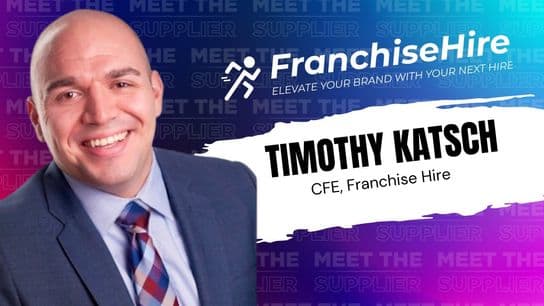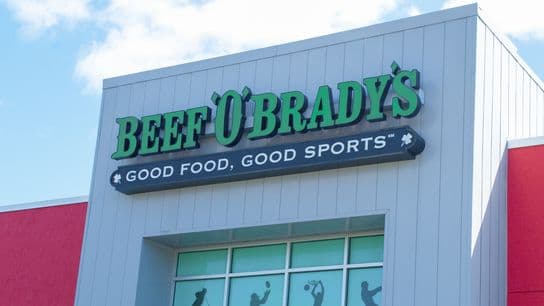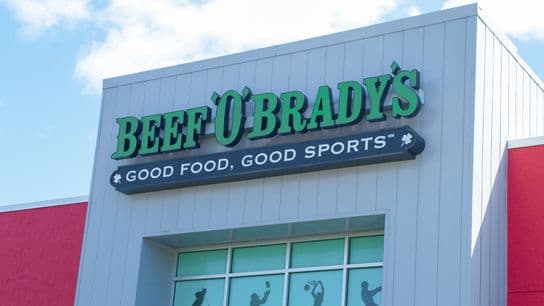Top 4 Things Franchisees Need to Know About Current Employment Law
As we enter a new year, it's important that franchisees know the challenges they may face when it comes to new employment laws.
Employment debates were perhaps the most influential nexus tying the franchise world to the everyday person in 2015. For business owners, these employment issues have the ability to threaten their existence, raise prices or, at the very least, shake up the franchise industry, making everyone pay attention. As we enter the first quarter of 2016, it’s more important than ever for franchisees to be aware of the challenges they face and what the laws’ direct impact is on their business.
I had the chance to speak with Michael Daigle, partner with Cheng Cohen, and Mark Mathison, attorney with Gary Plant Mooty, about employment laws and what franchisees are facing in the New Year.
Joint Employer
The Joint Employment decision in the Browning Ferris by the National Labor Relations Board (NLRB) is an issue that impacts both franchisors and franchisees from a hiring and potentially a financing standpoint.
“Most franchise system models are structured such that franchisees, while having to comply with certain system standards, are independent businesses charged with the responsibility for the day-to-day operation of their own businesses,” said Daigle. “That independence is important for both franchisor and franchisee—the franchisor is often able to use the independence to avoid liability for claims arising out of the operation by the franchisee of it business, and the franchisee not only wants to be his “own boss,” but it counts on that independence for things like qualifying for loan guaranties from the Small Business Administration.”
With changes in the perceived relationship between franchisee and franchisor, franchise brands would be responsible for issues directly related to the local franchisee. This disrupts the core foundation franchising was built on.
“Since employees are the foundation of most businesses, maintaining a certain distance between franchisor and franchisee on the matter of the franchisee’s employees (hiring, firing, and other terms of employment) is critical to ensuring the franchisee’s independence,” said Daigle.
Minimum Wage
Minimum wage has been, and will most likely continue to be, a hot topic for franchise brands.
“The ‘Fight for 15’ movement, backed by the Service Employees International Union, along with other similar action campaigns across the country, has trained its focus on raising the minimum wage and on other working conditions, such as a requirement that employers provide paid sick leave,” said Mark Mathison. “Many of the low wage jobs that these movements are especially targeting may be found in the hospitality and other industries where franchising is prevalent.”
With employees being the greatest cost for many franchise brands in the hospitality industry (restaurants, hotels, etc.), higher prices and labor cuts could be the outcome.
“As employees are the foundation of most businesses, the wages paid those employees are usually one of the biggest expense items on the business’ profit & loss statement,” said Daigle. “One school of thought is that increased minimum wages would be passed on to consumers in the form of higher prices for goods and services.”
Overtime Pay
The debate over employees goes far beyond minimum wage, and the following issue about who is considered to be non-exempt employees who are entitled to overtime pay is another growing concern in the franchising industry.
“Under federal rules regarding overtime pay, employees who made more than roughly $24,000 per year were exempt from the overtime pay requirement,” said Daigle. “In June 2015, the Department of Labor announced a proposed increase in the salary level required for exemption from overtime pay to roughly $50,440 per year for 2016. The increase in the salary threshold will greatly increase the pool of employees entitled to overtime pay, putting additional pressure on the profitability of small businesses.”
Again, this issue could result in higher prices for consumers and job cuts.
The Silver Lining
For many people in franchising, employment issues are scary. But not everything has to be seen as doom and gloom. Both Daigle and Mathison are confident that the franchise industry will remain a strong part of the economy.
“Franchising has been around for a long time and, in all likelihood, will continue to be around,” said Daigle.
While this fight will continue to be difficult, there are some that are willing to put their hand out from across the aisle.
“NLRB’s General Counsel, Richard Griffin, continues to profess that he is open to input from the franchise industry and that there is not an intention to target the industry’s business model per se,” said Mathison. “The IFA (International Franchise Association) has met with Griffin and has expressed an intention to continue a dialogue with him, particularly on the joint employer issue. Industry participants may find it useful to communicate directly with the IFA and/or with Griffin about their concerns.”
In addition Mathison went on to say, “DOL (Department of Labor) Wage and Hour Division has announced that it is working with some larger franchisors to provide education to franchisees about their compliance obligations. This could be a source of assistance to many franchisees.”









